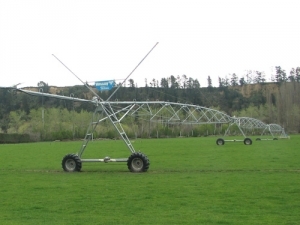Federated Farmers has welcomed the release of the Government's discussion paper on freshwater management as a "useful next step".
The Next Steps for Fresh Water paper follows the release in November of the fourth report of the Land & Water Forum.
"The Government has moved with tremendous speed and farmers are crying for certainty around the national framework that will be used to guide how council's tackle this important and very complex issue," says Feds president Dr William Rolleston.
"We're pleased that the discussion paper recognises that both rural and urban water users have a role to play, but it goes beyond the recommendations of the Land & Water Forum in terms of stock exclusion, such as the broader definition of what constitutes a waterway.
"While outlining a number of recommendations in terms of iwi rights and interests, it also leaves a lot of unanswered questions about what this will actually mean for water users. This is something everyone needs to understand, not just farmers."
Both of these issues were flagged by the Feds as potential issues for farmers when the latest Land & Water Forum was released.
"We said at that time and reiterate now that Federated Farmers and the industries we represent are committed to building on the good work done so far to make further improvements to water management and water quality," says Rolleston.
"At the same time, we need greater transparency around what any new measures will look like and to ensure that they are practical for farmers and reflect the activities and impacts of all water users.
"It is important that iwi are heard just like any other sector of society but what this means for council processes needs to be made clear and the outcomes need to be practical for water users.
"We are also concerned that some local Governments may use their role in consultation with iwi over water to pre-empt negotiations between iwi and central government."
The Feds also welcomed the government's investment of a further $100 million to address water management.
"This follows the government's allocation late last year of $20 million to seek scientific solutions to agricultural emissions," he says.



















